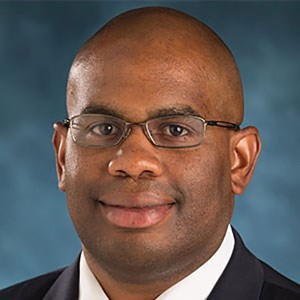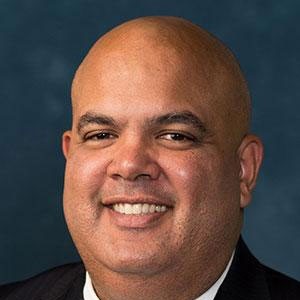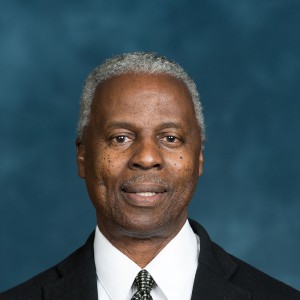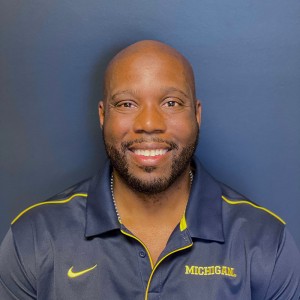Sport Social Work Certificate
Summary
Understanding and supporting athletes and their overall health and welfare has been a prominent specialty service area that social workers have formally and informally navigated for decades. And today, the need for sports social workers with advanced training has never been more requested across sport settings (youth, collegiate, professional, and geriatric). Research currently suggests that: (1) athletes engage in sport across the lifespan to foster a greater sense of belonging and social connection; (2) athlete mental health needs are increasing and licensed, mental health providers are needed to meet this growing demand; and (3) athletes are using their platform to address social injustices and bring awareness to long-standing disparities across our country. As established agents of change, social workers uphold the profession's mission and core values, while having an expansive scope of practice to improve outcomes for individuals, communities, and the larger society.
The Council on Social Work Education (CSWE), American Psychological Association (APA) and other adjacent accrediting bodies do not currently require mental health professionals to engage in curriculum specific to understanding sports across the lifespan. This program was created with the intention of advancing social workers knowledge, skills and abilities as it relates to sports.
Participants will:
- understand the history of sport social work in the United States,
- develop a functional working knowledge of the roles that sport social workers play across all levels of social work practice;
- promote healthy relationships, encourage help-seeking behaviors, and establish and implement strategies for mental health programming that aligns with the mission and structure of an organization;
- understand the role sport plays in athletes' identities across the lifespan, embracing the “Once an Athlete, Always an Athlete" approach;
- apply evidence-informed practices in clinical settings, research and social justice advocacy.
The certificate program is taught by nationally-recognized leaders in sports and will cover program development and implementation, mental health symptoms and how they manifest in athletes, crisis management, integrated care models currently utilized, sport performance skills, communication and relationships on teams, ethical research practices, the value of sport and social justice advocacy, identity and transitions, nutrition, concussion management, sleep, and more!
The Council on Social Work Education (CSWE), American Psychological Association (APA) and other adjacent accrediting bodies do not currently require mental health professionals to engage in curriculum specific to understanding sports across the lifespan. This program was created with the intention of advancing social workers knowledge, skills and abilities as it relates to sports.
Participants will:
- understand the history of sport social work in the United States,
- develop a functional working knowledge of the roles that sport social workers play across all levels of social work practice;
- promote healthy relationships, encourage help-seeking behaviors, and establish and implement strategies for mental health programming that aligns with the mission and structure of an organization;
- understand the role sport plays in athletes' identities across the lifespan, embracing the “Once an Athlete, Always an Athlete" approach;
- apply evidence-informed practices in clinical settings, research and social justice advocacy.
The certificate program is taught by nationally-recognized leaders in sports and will cover program development and implementation, mental health symptoms and how they manifest in athletes, crisis management, integrated care models currently utilized, sport performance skills, communication and relationships on teams, ethical research practices, the value of sport and social justice advocacy, identity and transitions, nutrition, concussion management, sleep, and more!
- Implement best practice mental health crisis intervention assessment and intervention models within an organization.
- Describe strategies for helping athletes navigate developmental changes from adolescence to adulthood.
- Build an integrated health team to effectively address an athlete's medical needs.
- Identify and address eating disorders and disordered eating behaviors across the spectrum of care.
- Identify risk factors and assess for potential disordered eating in athletes, encouraging athletes to get help proactively.
- Describe current mental health programs and their missions and structures.
- Identify major historical steps in the development of sport social work.
- Associate physiological and psychological aspects of sports performance.
- Describe the impact of concussion management on athletes, coaches, team, and other support staff.
- Evaluate an athlete's transition out of sport, considering the impact on identity, and stages of grief and loss.
- Describe the impact of psychotropic medications on athletic performance, and the trends of mental health and medication usage in athletes over the past 10 years.
- Describe how aging impacts older adults' experience of being a sports participant or fan.
- Identify three interventions that can reconnect older adults with involvement in sports.
- Use empathy when working through the range of emotions athletes are facing while injured.
- Complete a biopsychosocial history using the Bronfenbrenner's ecological model from an athletic perspective.
- Identify ways that mental health manifests in athletes differently from the non-athlete population.
- Outline gaps in sport social work research and growth trends for the field.
- Apply theories of identity development, resources, and treatment options to assist with transition management and adjustment disorders.
- Identify the diagnostic criteria, symptoms, and course of treatment for insomnia/delayed sleep-wake disorders.
- Describe the unique mental health and performance needs of LGBTQ+ athletes, and review available resources.
- Describe the impact of community, department, and teams on inclusion of LGBTQ+ athletes, reviewing literature and legislation.
- Outline drug testing protocols and banned substances, and identify resources to help athletes mitigate risk around banned substances.
- Describe the role of sport psychologists and identify common issues sport psychologists help athletes address.
- Distinguish between a performance and mental health intake and what is important to capture when working with athletes on performance enhancement.
- Describe the benefits of experiential learning opportunities within sport.
- Describe positive and negative mental and physical impacts of sport on youth, and the effect coaches have on youth athlete development in and out of sport.
- Identify and implement programs that positively impact communities.
- Describe the boundaries of confidentiality and the importance of healthy communication within the bounds of HIPAA.
- Describe how research has helped increase support for athletes across the spectrum with a historical lack of empirical evidence.
- Outline the roles and responsibilities of a sport social work fellow/intern and the other members of the interdisciplinary care team.
Agenda
| Date | Time | Description |
|---|---|---|
| June 14, 2022 | 3:00pm - 4:00pm | Intro to the Sports Social Work Certificate Program |
| June 14, 2022 | 4:00pm - 5:00pm | Understanding Athlete Needs |
| June 21, 2022 | 3:00pm - 5:00pm | Treatment Needs: Managing Mental Health Crises with Athletes |
| June 28, 2022 | 3:00pm - 4:00pm | Developing Healthy Relationships |
| June 28, 2022 | 4:00pm - 5:00pm | Self Defeating Attitudes and Behaviors |
| July 12, 2022 | 3:00pm - 4:00pm | Lessons Learned from a Clinical Team |
| July 12, 2022 | 4:00pm - 5:00pm | Working in Collaboration with Coaches |
| July 19, 2022 | 3:00pm - 4:00pm | Athletes Connected: Developing Community-Based Programming |
| July 19, 2022 | 4:00pm - 5:00pm | Ensuring Healthy Development for Youth through Sport and Recreation |
| July 26, 2022 | 3:00pm - 4:00pm | Importance of Internships and Fellowships within Sport |
| July 26, 2022 | 4:00pm - 5:00pm | Future of Sports Social Work |
Instructors
 G. Warren Clark
G. Warren Clark Michael Bottom
Michael Bottom Jeffrey Porter
Jeffrey Porter Caroline Mandel
Caroline Mandel Erin Albert
Erin Albert Darryl Conway
Darryl Conway William L. Vanderwill
William L. Vanderwill Warde J. Manuel
Warde J. Manuel Tarkington J. Newman
Tarkington J. Newman Emily B. Klueh
Emily B. Klueh Anthony Rossi
Anthony Rossi Gregory Harden
Gregory Harden Rachel A. Amity
Rachel A. Amity Nicholas Velissaris
Nicholas Velissaris Christina N. Murphy
Christina N. Murphy Abigail H. Eiler
Abigail H. Eiler Kevyn A. Monier
Kevyn A. Monier Eliza Beird
Eliza Beird Beverly Plocki
Beverly Plocki Amy Miller
Amy Miller
hybrid certificate program
Sessions
- 6/14/2022 3:00 PM to 5:00 PM
- 6/21/2022 3:00 PM to 5:00 PM
- 6/28/2022 3:00 PM to 5:00 PM
- 7/12/2022 3:00 PM to 5:00 PM
- 7/19/2022 3:00 PM to 5:00 PM
- 7/26/2022 3:00 PM to 5:00 PM
CE Contact Hours
- 1 ethics asynchronous online
- 2 pain management asynchronous online
- 15 regular asynchronous online
- 12 regular live interactive online
Skill Level
Intermediate
Location
online
Fees
$975.00
You are viewing a previously offered course.
View our course catalog for currently offered courses.
